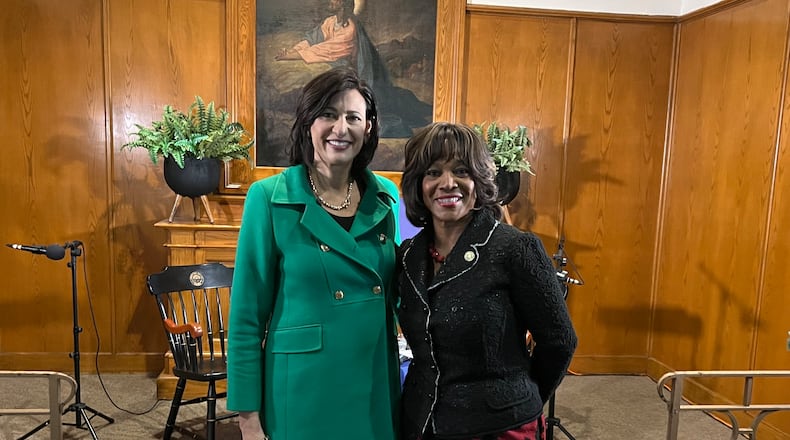Rochelle Walensky, director of the Centers for Disease Control and Prevention, said Wednesday that the health care workforce needs diversity to help alleviate health disparities — which is “critical” with the industry’s current worker shortages and burnout.
During a visit on the campus of Morehouse College, Walensky cited an analysis conducted by the de Beaumont Foundation and the Public Health National Center for Innovations which said 80,000 additional full-time workers are needed in local and state health departments to provide a basic level of adequate care.
“When you think about how we are going to develop a public health workforce that is as diverse as the communities we serve, we absolutely need a diversity of workforce,” she said. “Communities really want to talk to people who understand their community.”
Walensky recalled caring for HIV/AIDS patients in 1995 at the height of the epidemic at Johns Hopkins Hospital after graduating from medical school. She watched many patients die. At the time, much was still unknown about the disease. Later in December that year, some of the earliest drugs used to treat HIV/AIDS were approved by the FDA.
“It was that moment that I said we can really change the course of this, and I really want to be a part of how that was going to unfold,” Walenksy said.
She credits her experiences working in inner-city Baltimore to helping her become the leader she is today. As a student, Walensky said she did not have rising to the helm of nation’s top public health agency on her radar. However, she credits her experiences as an infectious disease physician, her ability to pivot and her passion for people for helping elevate her to the position.
Walensky will be the featured guest on the December episode of Morehouse School of Medicine’s Danforth Dialogues podcast, hosted by the institution’s president and chief executive officer, Dr. Valerie Montgomery Rice.
The series is recorded in the Danforth Chapel on Morehouse College’s campus, and features leaders talking with Montgomery Rice about lessons learned during the pandemic, while also reflecting on their broader leadership experiences.
Walensky began her tenure at the CDC in January of 2021, at the height of the pandemic. She said she recognized early on the need to foster relationships in places were mutual trust was pivotal.
“What I really needed to do and have continued to do is fostering those places where I have had less of those connections,” she noted.
In a paper she co-authored before heading the CDC, Walensky asserted that any COVID-19 vaccine’s efficacy would depend on people’s willingness to take it. Public health officials recognized this obstacle and centered vaccination campaigns around getting communities of color and other underserved populations access to vaccines.
Walensky explained how many infectious diseases first affect people who travel internationally on airplanes and cruise ships, and then the diseases spill over into minority communities, many of whom have jobs as frontline workers.
She also reflected on progress made around mpox, the disease formerly known as monkeypox, that surged within the LGBT community this summer. Monkeypox vaccination rates for Black and Latino communities, those most affected, still lag behind cases within these populations, something Walensky says the CDC is continuing to work to change.
Walensky gave advice to leaders and students, encouraging them to follow their passions, listen more than they talk and to help foster the next generation.
“You are our future. We need you,” she said. “There is so much brightness and so much potential ahead.”
The Atlanta Journal-Constitution and Report for America are partnering to add more journalists to cover topics important to our community. Please help us fund this important work at ajc.com/give
About the Author
The Latest
Featured



